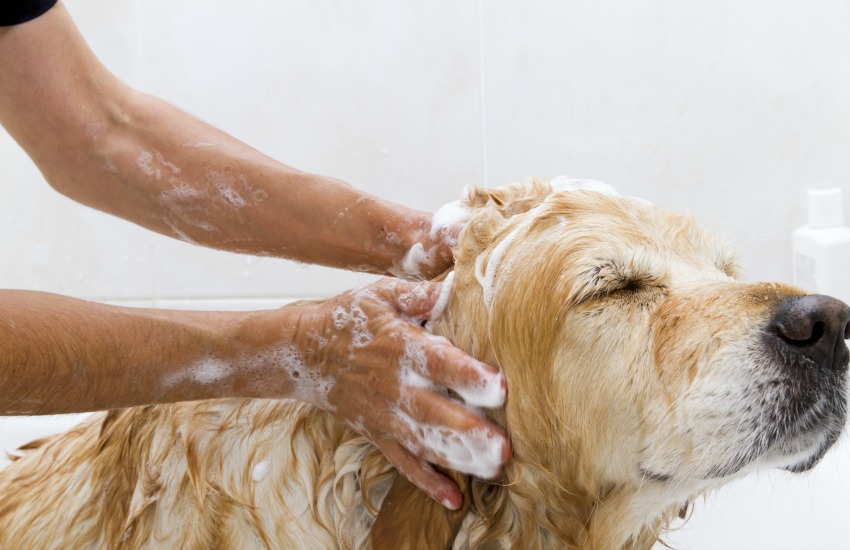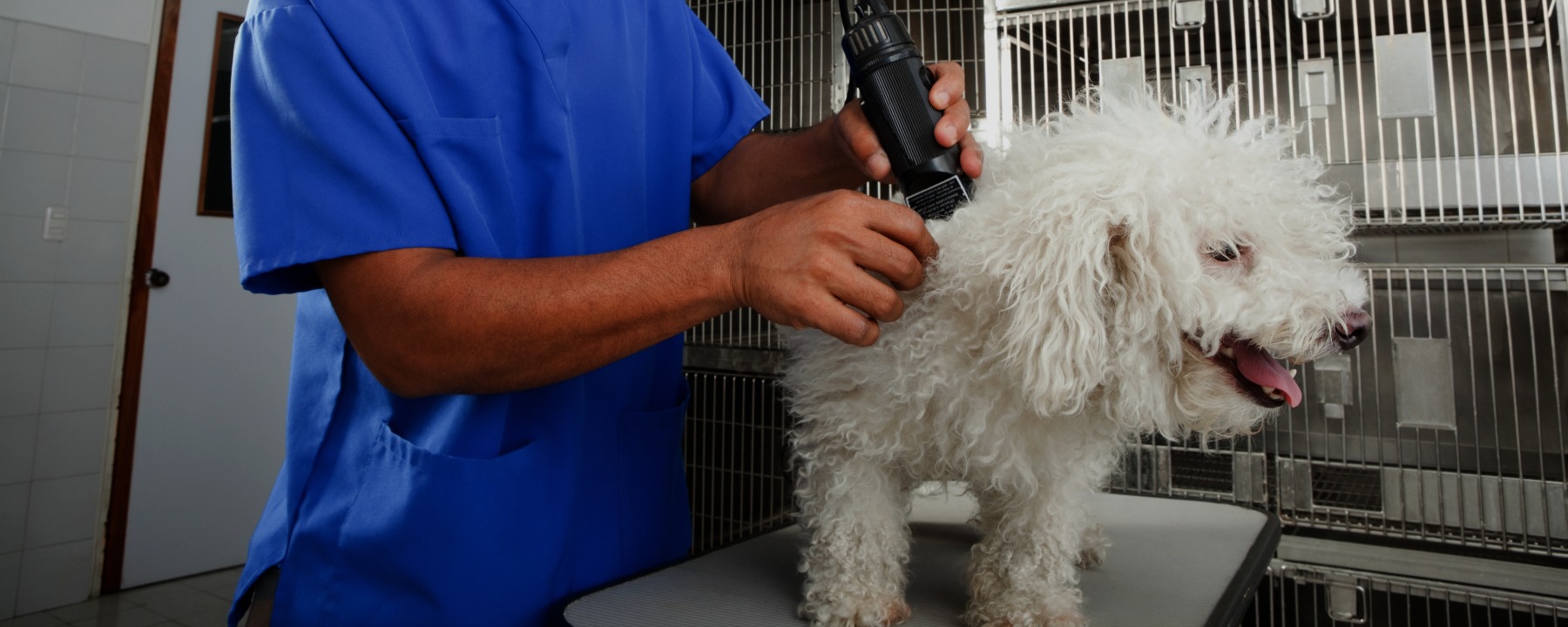As an aspiring pet groomer, you need to find training that gives you the best bang for your buck. Not all training programs are created equal, so it’s important for you to scope out the programs that are fit for your lifestyle and career goals.
But how do you know what kind of program is best for you when you’re just starting out? There are at least eight main factors to consider in your search for the best dog grooming school. Read on to find out how QC Pet Studies measures up, and how you can find the best program for you!
Tuition & Payment Plans
When it comes to tuition, all schools will be different. Of course, classic brick-and-mortar institutions will be more expensive than most online programs – considering the maintenance that goes into the building – but higher tuition prices don’t always mean a better education. More often than not, you’re paying for the added “bonus” of in-class learning. You’re paying for your tutor to spend time performing demonstrations each class, rather than for a better program.
The truth is, most dog grooming courses contain a lot of the same material. So what does this mean when it comes down to choosing a program? You don’t only want to look into the course content when making your decision – the school’s resources are just as important as what you’ll learn in class!
Something that’s a true tell of whether the school cares about training over money is the existence of tuition payment plans. This shows that your school is flexible when it comes to your personal training, and it means that you’ll form a relationship with your school rather than just dropping thousands of dollars and then going your own way. Let’s be honest – not many people can afford to pay for a full dog grooming course upfront, and a school that can help you finance your education over time is one that wants you to succeed.

Tutors
Before you enroll in any dog grooming program, you should know exactly who will be teaching you. What experience do they have in the industry? Are they currently employed or working as professional groomers? Do they have a passion for education and learning? Will they provide honest and constructive feedback for each assignment you submit?
These are just a few questions you need to be able to answer before settling on a course. For example, a short introduction or interview with your potential tutors can help you decide which program is best suited for you! In a nutshell, you should know exactly how your tutor works with you and guides you before enrolling in a grooming course. If a dog grooming school (online or classroom-based) is vague about its tutors/teachers/instructors, ask yourself why!
Hands-on Work
Learning dog grooming is a combination of theory work and hands-on practice. You need to strike a happy medium between the two! Not only do you need to know what you are doing, and why you are doing it, you need to know how to use specific techniques. First comes the theory, and then comes your hands-on training.
But hands-on practice varies from school to school, so it’s important to flesh out the details of how you’ll actually gain practical experience. Most dog grooming schools have practicums or externships where you groom dogs in the real world, but simply put, plain practice isn’t enough. You need to know that you’ll have professional guidance and tips on each aspect of grooming you perform. How will you know that you rocked a Teddy Bear cut if your practical assignments aren’t graded by your tutor?
One thing to note about the school you choose is whether they pair you with groomers if they require you to take an externship. If they don’t provide you with a mentor but instead expect you to go out and find your own, you could be choosing a groomer who isn’t as good as you think!
At this point, it makes sense that in-class grooming lessons have an advantage – but don’t discount online courses too quickly! A quick recording of before, during, and after the groom will show your tutor everything they need to see to train you properly.
First Aid Training
One of the most important topics to cover as a professional pet groomer! How can you be expected to start working on real dogs if you don’t know how to handle nicks, cuts, and other emergencies? Before you get into your practical units, you should have to complete first aid training.
And first aid training is not to be taken lightly! You should come out of this unit knowing how to properly handle any situations that come up in the salon, during an appointment, and even outside of your grooming duties! For example, knowing pet CPR, how to use first aid materials, and what you need to keep in a first aid kit are essential for every aspiring groomer.
Many dog grooming courses will include “safety” in their curriculum, but these units usually focus more on how to set up your workspace for your personal safety. Very few schools will take the time to teach you in-depth Dog First Aid. Ask yourself: if you’re going to leave your beloved pet with a professional, wouldn’t you expect this professional to be fully equipped to handle medical emergencies? Be sure you offer your future clients that same peace of mind.
Hours to Completion
This is a grey area in every course – even at brick-and-mortar grooming schools, it really depends on your own learning style and how much you need to practice outside of the lesson. You should look for a set number of hours that it generally takes for students to complete the course. With a specific number of hours, you can set your own pace of full or part-time learning! This will give you a better idea of how much practice is actually needed, along with how many hours of video/theory work you’ll complete.
Before you enroll, you should have a general idea of when you’ll be able to enter the workforce as a certified groomer.

NDGAA Exam Prep
For aspiring groomers, this is one of the most important questions to ask your school! And no, a final exam in your course is NOT the same as NGDAA exam prep! The National Dog Groomer’s Association of America has specific expectations for groomers, and to be taken seriously, your school should prepare you for these industry exams.
There are a few different exams that the NDGAA offers – there’s the practical and written exams that test your knowledge in popular breed groups and standards, and there’s also the Certified Master Groomer Exam which tests you on all other breed groups!
An easy way to tell if your school follows a good curriculum? Simply ask! If the program has been reviewed by the NDGAA, the school will be able to tell you if their course prepares you for these exams – enough said. Even if you’re not planning to take them, it’s a good tell if the program follows industry standards and best-practices!
Certification
Since dog grooming is a generally unregulated industry, each program will have its own certification or designation. The main point of having a certification is to prove that you’ve put in your training and completed a grooming program successfully. This instills a lot of confidence in your abilities as a groomer, for both yourself and your clients!
It’s also important to remember that one school’s certification isn’t more legitimate than another’s. Your program of choice will depend on your career goals and current availability, so be sure to sift through the course content rather than focusing solely on the certification.
And once you graduate, display it loud and proud! Remember that a certification isn’t everything – it’s the learning that happens along the way.
Have questions about QC’s dog grooming certification course? Get in touch with us to learn more about your training and career options!



